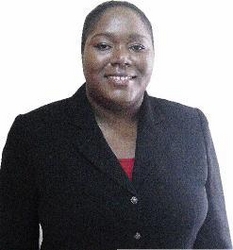SMART CHOICES: Understanding your financial life cycle (Pt 1) - Making the right move at the right time
Published: Wednesday | November 25, 2009

Simone Evans, branch manager, JMMB Mandeville.
PUTTING SOMETHING away for a rainy day is always a good idea. Then, of course, there is the wisdom of planning for retirement. Within the last few years, there have been a plethora of new financial products aimed at getting people to set money aside specifically for retirement.
But getting people to think of and prepare for those 'golden years' is not always easy, especially if you're speaking with a 22-year-old for whom 65 seems a very distant reality. Besides, retirement-planning financial advisers will tell you it's difficult to convince people in general to plan ahead as they are often of the view that there's more than enough time to make those important financial decisions.
What should I do?
How can you be sure you're not behind the curve? How can you know when it's the right time to make a move? That's the question on the mind of a reader who wrote, "I keep hearing about planning for retirement, but my main goal right now is to own a car. My dad says I should forget about the car and con-centrate on buying a house in-stead. What should I do?"
Operations manager for the Mandeville branch of the Jamaica Money Market Brokers, Simone Evans, says deciding what to do is largely dependent on where you are in your financial life cycle.
"Every person goes through a financial life cycle, regardless of his/her status or position," she says.
According to Evans, there are four main stages in the cycle, beginning with the early earning stage, usually between the ages of 20 and 35 years. This is followed by a period of established earning and accumulation which then goes into the pre-retirement or consolidation phase. The average age range in this stage of the financial cycle is 55-65 years. After that, there is the retirement and wealth distribution or gifting stage.
Be informed
Evans contends that it's important to be familiar with the stages of the financial life cycle and be able to identify the phase you're currently in.
"If you're serious about saving, wealth creation and meeting your financial goals, you'll want to know what to do at each stage of your life, so you can maximise, then properly prepare for the next phase," she advises.
Starting with the example of a young college graduate, Evans points out the difference between the goals at this stage versus those of an older person who has been working for many years.
"A person just leaving school may focus on short-term goals like paying off student loans and buying a car. If you are approaching retirement, you will probably want to be paying off long-term loans, like your mortgage, and consider getting some additional real estate in your portfolio," she explains.
Cover health issues
The JMMB executive insists that without a clear understanding of the financial life cycle, it will be more difficult to prepare for those years when your earning potential begins to decrease. She notes that the expenses to consider in this phase of life go beyond food, clothes and shelter.
"There is health care and how you will pay for it. If you didn't have health insurance before, you may want to get some, or ensure you have the cash flow to cover health-related expenses that are likely to increase beyond the age of 65," she adds.
On the question of choosing between buying a car or house, or saving for retirement, Evans encourages persons to speak directly with a financial adviser who can give tailored advice.
"At JMMB, we sit with you to create a financial plan that's not a mould. It's not a turnkey or a one-size-fits-all thing," she asserts.
For more on the financial life cycle, send your questions to editors@gleanerjm.com, and the team at JMMB will answer online, in print and on air.







